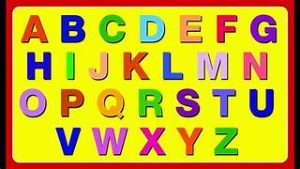
There are over 200,000 educators in Australia alone. While this may seem like a considerable number, there is always space for more teachers to climb on board and facilitate the growing educational sector. Schooling is an integral part of a child’s life. From elementary to university, they learn essential skills and concepts that shape them into celebrated professionals.
You, as an educator, are the driving force in making this happen. The talent, and meaningful connections you create, help students pick up new concepts and add to their knowledge. However, leading all your students to success requires strategic thinking. No two are alike and need you to respond to them according to their needs. So if you’re eager to be an asset to your students, here is what you need to do:
Enhance your educational level
Like your students, you must continue learning and picking new skills to help them. Teaching is a multifaceted job. You must balance every student, know how to create lessons, and understand that each pupil has a learning capacity. At the same time, you must respect the school’s dedicated timeline for conducting assessments and helping students graduate. A bachelor’s degree in education is a stepping stone into the field.
But when you top it up with a master of education, your skills get refined, becoming a leader comes easy to you, and your school can also benefit from you by putting you into high management positions. This also helps maintain budgets and design curriculums that reshape the way students learn, making it easier for them to keep up with the workload.
Be a pillar of support for your school
Your educational institute needs you for more than managing classrooms. Administrative duties also need tending to, and your colleagues may require you to step in for them from time to time. When it comes to management roles, try taking up more leadership positions. This allows you to work on the school model and focus on budgeting, hiring teachers, meeting parents, finding new schools to work with, and introducing technology to help students learn better. You may even hire a team of experts to help teach students with disabilities who may feel isolated in the classroom because of a lack of cooperation.
Likewise, never hesitate to reach out to a colleague in need. Whether it is helping them write their classroom plan, discussing educational methods while dealing with a difficult student, or stepping in to substitute a class when they need to take off for an emergency. This never allows their pupils to fall behind or your coworker to get burdened with more work. Your support can glue the foundation of a successful school system. Every teacher needs a reliable friend in their corner.
Know your students
Getting to know your students is all about communicating with them. Every pupil is different, and you make a difference in their life by taking the time to get to know them. Communication is a layered process. You can’t talk to everyone the same way. Some pupils may need you to talk less and listen more, while others may be the opposite. So when you start learning about your students, always start with easy topics that you can answer before you move into questions about their future goals.
Your tone should be polite but firm so that students feel comfortable around you and understand your position as an authority figure. Nonverbal pupils may need you to draw, write or use sign language. As a teacher, you should make an effort to talk to your students who cannot use conventional methods by attending workshops that teach you these skills. Learning about your pupils also puts you in a better position to help them. You can cater to their needs, guide them better, and design lectures that benefit them. Additionally, you can provide resources that can supplement their learning, such as books and self-paced websites. If needed, get parents involved to streamline the process of learning further.
Channel creativity in classrooms
No student enjoys sitting in mundane classrooms listening to a dull lecture. This can cause them to zone out and force them to daydream. So while you may be getting through your class planner, your students will essentially learn nothing. An excellent educational institute’s essence is how you interact with students. The more innovation you bring, the happier your students will be. Learning is not a linear process. A chalkboard and verbal dictations are not enough to inspire your pupils to learn. They need more. So start by incorporating different styles in your classroom.
Bear in mind if you have students with special learning needs under your supervision, you may need to find methods that cater to their learning. This includes using visual aids, a consistent tone, and magnifying their fonts. There is no limit to how creative you can be. You can ask students to do projects and explain what they learned, create a song to memorize a mnemonic, and show videos, cartoons, or even jokes relevant to the topic. The more you engage and interact with your students, the happier they’ll be to learn from you.
Have a positive, can-do attitude
When you work in an environment such as an educational institute, your energy and attitude rub off on others. Students are more comfortable and relaxed if you’re always beaming and encouraging them to do the same. If they make a mistake, you’re more interested in educating them than rebuking them. If your student is going through intense emotional reactions such as anger and sadness for not performing well, help them see the light again. This reconfigures the way students think and helps them appreciate education for what it is. You also develop a can-do personality in them that encourages them to try and learn instead of giving up.
Conclusion
Edutainment is an integral part of a growing society. However, only educators can impart this knowledge and bring a massive change in learning and flourishing. As an educator, you define the parameters of your role by allowing yourself to get an advanced degree and applying those skills to your students. You can overcome any challenge and task by supporting your school and coworkers, taking your institution to the next level. Give yourself the space to learn about your students and pick up their strengths to encourage them to be better learners. Creativity is always welcomed in the classroom; allow yourself to be as imaginative as possible. Finally, never let your bad days sour your good ones, and always allow a positive attitude to help your students learn better.






